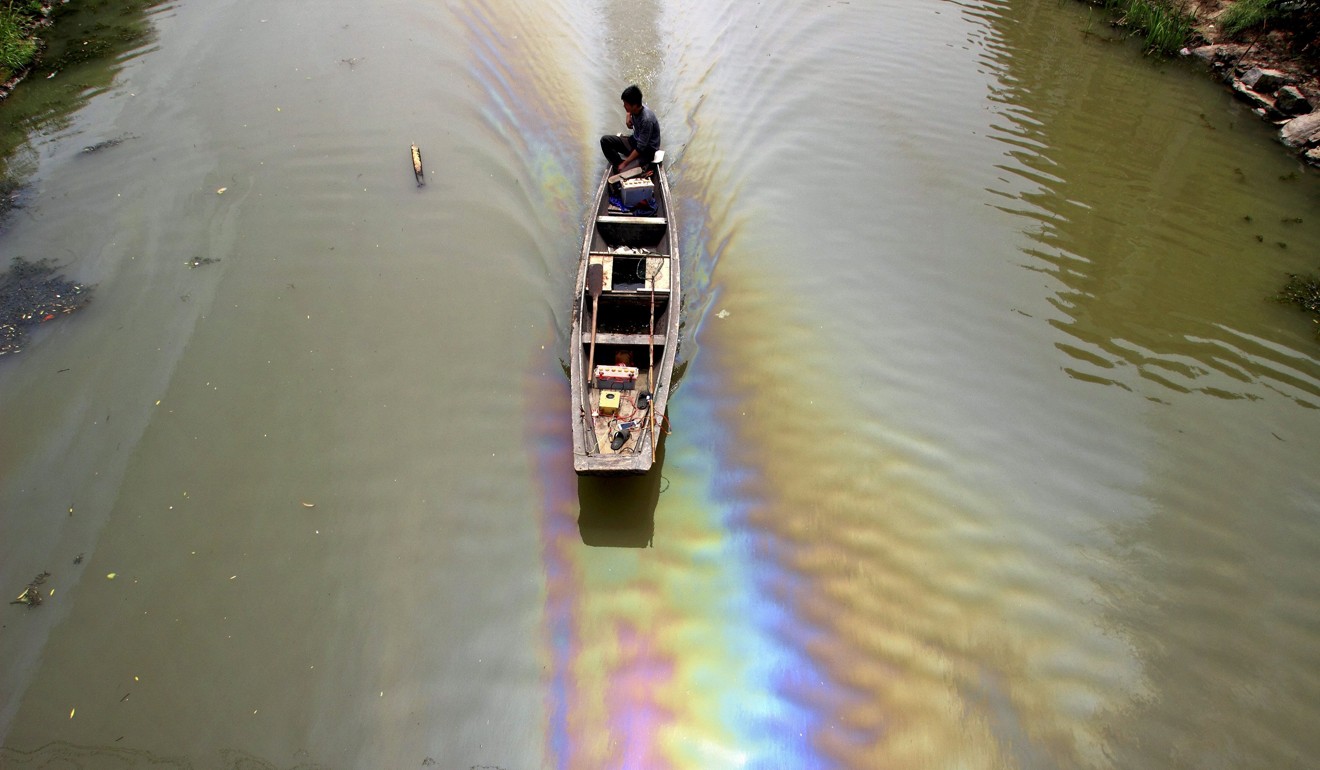
China’s war on pollution targets illegal waste dumping
Latest environmental crackdown sees city mayors summoned to Beijing to account for failures to tackle problem
China plans to carry out nationwide inspections targeting the illegal transfer and dumping of waste that damages water resources and soil, the environmental watchdog said on Friday as Beijing launched a new front in its years-long war on pollution.
News of the crackdown came as mayors for seven cities were summoned to a meeting at the Ministry of Ecology and Environment in Beijing on Friday to account for their cities’ failure to tackle the problem.
The ministry ordered them to submit plans within a month to improve their systems for disposing of spent chemicals, oil, medical, animal and other waste, and to step up scrutiny of companies that spew toxic refuse.
“Local authorities have been focused only on air pollution and water pollution and have not paid attention to waste disposal,” Zhou Zhiqiang, a senior official with the ministry, said at the briefing.
The illegal disposal and storage of dangerous waste has become a widespread issue among chemical producers with reported cases more than doubling between 2015 and 2018, the ministry said.
Plans for sweeping checks mark a shift in focus for the environmental watchdog as it expands its reach beyond curbing emissions from heavy industrial sectors.

It also comes after state media reported a firm in Lianyungang, a major chemical and refining hub in the eastern province of Jiangsu, was illegally dumping its waste water.
At least six listed companies have since halted operations due to a crackdown following the report.
In prepared remarks at the briefing, the city’s mayor, Fang Wei, said authorities had already shut two chemical industrial estates, affecting 200 firms, until they comply with regulations.
“We have been repeating the cycle of inspection-rectification-punishment ... It’s time to solve the problem for good,” said Fang, facing a dozen environmental officials in a meeting hall at the ministry. This is the second time he has been called to the ministry since becoming mayor in late February.
Mayors from Guangzhou, Jiangmen and Dongguan in the southern province of Guangdong, Yancheng in Jiangsu, Baotou in Inner Mongolia and Wenling in Zhejiang, were also at Friday’s meeting.
Deeper scrutiny and a broad shutdown of factories could disrupt supplies of crucial chemicals and other products used to make man-made fibres and plastics, potentially driving up prices.
It was the second such gathering held by the newly beefed-up ministry in just over a week. Last Thursday, officials from three northern cities had to explain their failure to meet targets for cutting smog. Reuters was the first foreign media organisation allowed to attend the meetings.
Jiangmen will shut companies that do not meet environmental standards by the end of June, its mayor, Liu Yi, said on Friday.
Some officials complained about the struggle of dealing with the issue.
“Prices to dispose of waste are insanely high. To dispose of 1 tonne of mercury-contaminated waste, the market charges 20,000 yuan (US$3,152), which of course will encourage people to dump it illegally,” said Li Hui, director general at Guangdong Environmental Protection Department.
After struggling for years to force growth-obsessed local governments to toe the line, China’s environment ministry now has the authority to hold officials to account for failing to comply with pollution policies.
The war on pollution is now a key performance indicator that could determine an official’s promotion prospects, and local authorities said last year that senior officials could even face dismissal if they failed to meet winter targets.
Comments by the mayor of Wenling highlighted the struggle for cities as they scramble to comply with the government’s ambitious environmental targets.
“Our focus was on air pollution. Last year, we spent 30 million yuan to blow up chimneys (to reduce emissions), but did not pay enough attention to waste disposal.”

